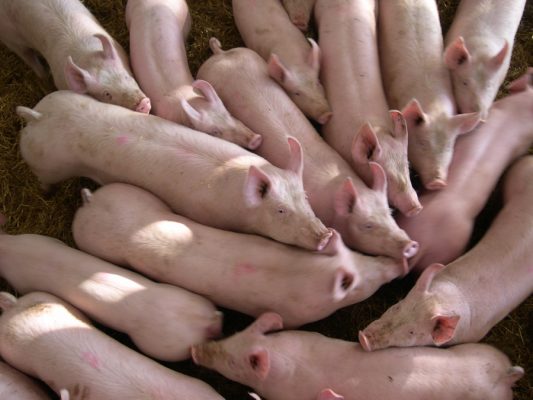
The United Kingdom will send its largest-ever shipment of pig semen to China this month, as it looks to improve the genetics of its domestic herd.
Dozens of major pig farmers in China will look to strengthen their stock using semen from pigs bred at the Deerpark Pedigree Pigs artificial insemination facility in Northern Ireland.
The order, for 2,000 samples, is worth 200,000 pounds ($271,000) and is the largest since the UK won the right to export pig semen to China during a trade mission in 2013 led by then prime minister David Cameron.
China accounts for half of all global pork consumption, and pork imports have grown at an annual rate of 150 percent since 2007. In November, two companies in Northern Ireland gained approval to export pig trotters to China in a deal that could generate an estimated 20 million pounds a year for UK farmers. Trotters are not widely eaten in the UK but are considered a delicacy in China.
As imports continue to grow, China is restructuring and investing in its pig sector to boost domestic supply.
“A lot of Chinese companies are looking toward the UK and Northern Ireland to see how they can benefit from our expertise and improve their overall food security,” said Nigel Overend, co-owner of Deerpark.
The company has exported two smaller shipments to China during the last 18 months.
“The offspring from the first consignments have come through, and they have outperformed a lot of the other genetics the Chinese companies have been using,” he said. “That’s why we have had repeat orders.”
Deerpark also provides Chinese pig farmers with technical instruction in thawing and preparing the frozen semen for insemination.
“We’ve been breeding pigs for 40 years and constantly improving their genetics,” Overend said. “China needs to improve their pigs to become more efficient. To do that, they’ve had to introduce new genetics. And they’ve looked at different companies throughout the world. We seem to be suitable for them.”
Pig farmers prefer an animal with a good feed conversion rate, which is a measure of how efficiently they convert food into flesh. Other desirable traits include resistance to disease, and sows that produce large litters of robust piglets that can withstand adverse conditions.
Zhao Jianguo, a researcher in agricultural genetics at the Chinese Academy of Sciences, said continued innovation in the pork industry in China is crucial because it is the country’s most widely consumed meat.
“China spends a lot of money trying to improve economic production and efficiency in the pig industry,” Zhao said.
Last year, Zhao and researchers from Aberdeen University in Scotland successfully used gene editing technology to produce pigs that are capable of producing brown fat, which improves their overall health and makes them cheaper to feed.


